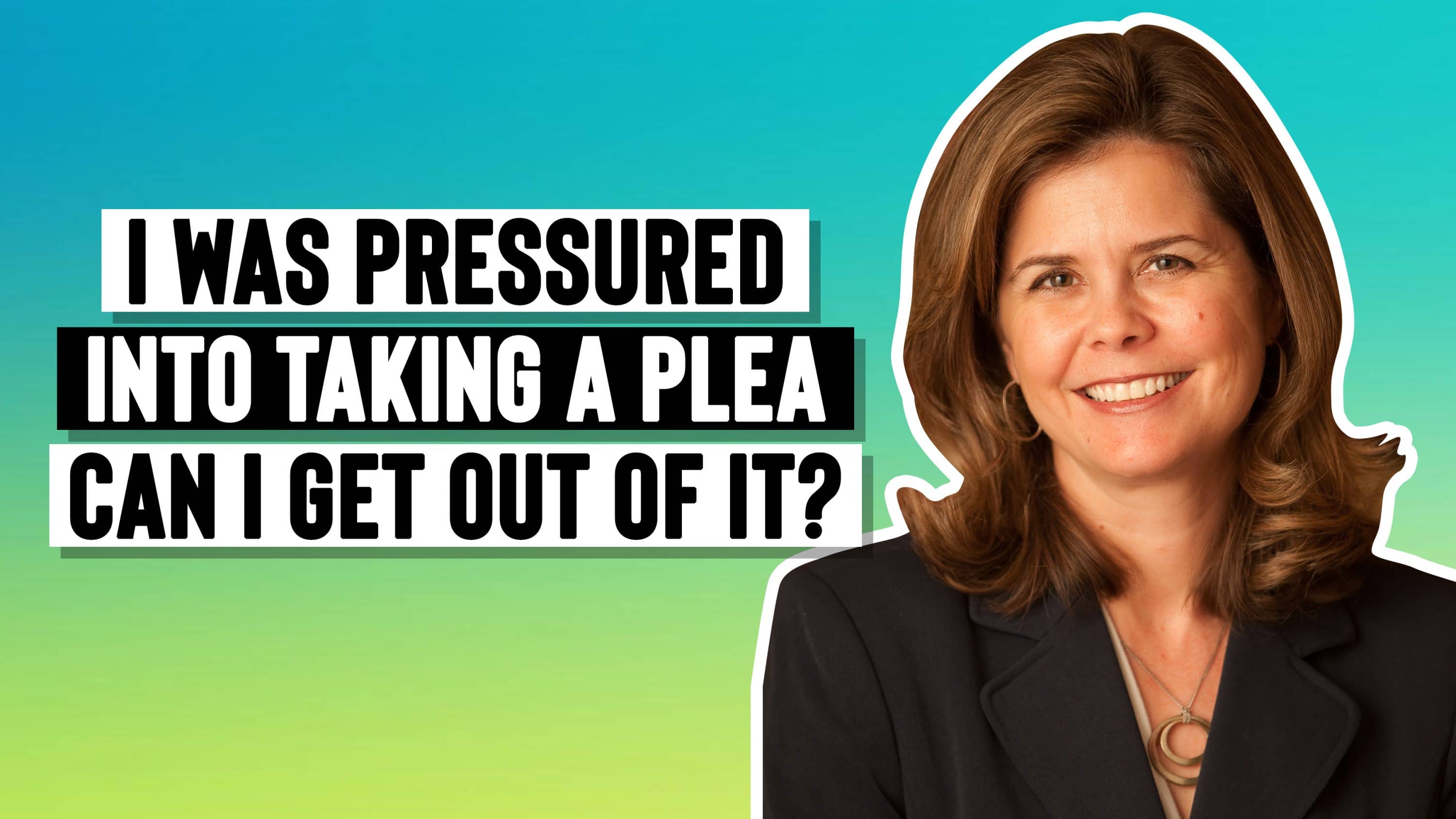
I Was Pressured Into Taking a Plea – Can I Get Out of It?
Entering a guilty plea is something that should be done with a lot of thought and consideration. After all, it can change the entire course of an accused’s life. Some people, after they have entered a plea of guilty, regret doing so because they felt pressured into it by their attorneys or family members. In these situations, it’s important for them to know if they have options to get out of their guilty plea.
Opportunity to Get Out of the Plea During the Hearing
Before the court accepts an accused’s plea of guilty, it is obliged to ask if the accused was forced, threatened, or promised anything outside of the plea agreement in order to convince them to plead guilty.
If the accused answers “yes,” the judge would not take the plea. If they answer “no,” the court is assured that the plea is voluntary and was given with free will. They will then accept the plea of guilty and move forward to sentencing.
Pressure vs. Force, Threat, Coercion, or Promise
An accused receives a lot of advice from their attorney before they decide whether or not to take a plea agreement. It’s a criminal defense lawyer’s job to convince the client to take a plea if it is more favorable to them and their unique situations.
However, the client still holds the ultimate decision of whether or not to accept the plea. They have every right to refuse a plea agreement and go to trial against their attorney’s advice. Or they can choose to accept the plea agreement because they were pressured to do so.
However, there is a stark difference between getting pressured into a plea agreement and the force, threat, coercion, or promise that the court is looking for during the plea hearing. Merely being pressured into it is often not enough. There needs to be serious grounds to get out of a guilty plea.
Can an Accused Get Out of a Plea Prior to and After Sentencing?
Once an accused has entered a plea of guilty, it is difficult to get out of it. While there are reliefs, it is a complicated process that requires solid proof or reasons that call for the withdrawal of the plea.
Prior to sentencing, the accused needs to show a manifest injustice that needs to be corrected, such as if the defendant was denied correct assistance by their lawyer or the plea was entered without knowledge of the sentence that could be imposed.
If the accused wants to withdraw from the guilty plea after sentencing, they will need to file a petition for post-conviction relief within 90 days of sentencing and show specific reasons why they should be given relief.
While there are ways to get out of a guilty plea, it is a very difficult process that does not guarantee withdrawal. That’s why it’s important that the accused speaks to their attorney and weighs their options carefully.
Latest Posts
What Should I Do If I’m Incarcerated and Owe Child Support?
A parent with a child support order must pay the amount decreed. If they cannot, for example, if they are in jail, the obligation to pay child support does...
Can I Get My Civil Rights Restored in Arizona If I am a First-Time Felony Offender?
Arizona laws are stricter than most states when it comes to the civil rights of a felony offender. When someone is convicted of a felony, they lose their...

